Filter by
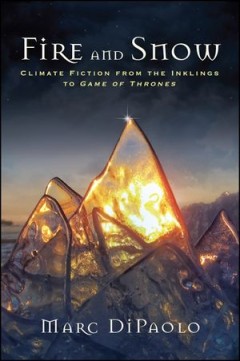
Fire and Snow : Climate Fiction from the Inklings to Game of Thrones
Fellow Inklings J. R. R. Tolkien and C. S. Lewis may have belonged to different branches of Christianity, but they both made use of a faith-based environmentalist ethic to counter the mid-twentieth-century's triple threats of fascism, utilitarianism, and industrial capitalism. In Fire and Snow, Marc DiPaolo explores how the apocalyptic fantasy tropes and Christian environmental ethics of the Mi…
- Edition
- -
- ISBN/ISSN
- 9781438470450
- Collation
- -
- Series Title
- SUNY Press Open Access
- Call Number
- 800 DIP f
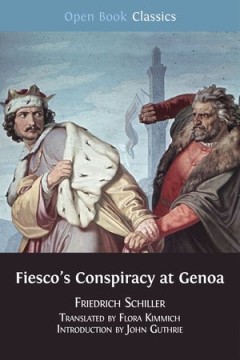
Fiesco's Conspiracy at Genoa
Within two years of the success of his first play Die Räuber on the German stage in 1781, Schiller wrote a drama based on a rebellion in sixteenth century Italy, its title: The Conspiracy of Fiesco at Genoa. A Republican Tragedy. At the head of the conspiracy stood Gian Luigi de’ Fieschi (1524–1547), Schiller’s Count Fiesco, a clever, courageous and charismatic figure, an epicurean and u…
- Edition
- -
- ISBN/ISSN
- 9781783740444
- Collation
- 150 halaman
- Series Title
- Open Book Classics Volume: 2
- Call Number
- 800 SCH f
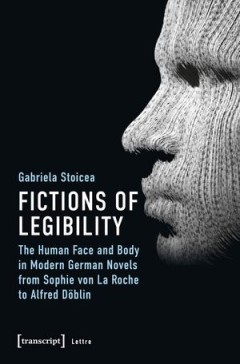
Fictions of Legibility : The Human Face and Body in Modern German Novels from…
Gabriela Stoicea examines how the incidence and role of physical descriptions in German novels changed between 1771 and 1929 in response to developments in the study of the human face and body. As well as engaging the tools and methods of literary analysis, the study uses a cultural studies approach to offer a constellation of ideas and polemics surrounding the readability of the human body. By…
- Edition
- -
- ISBN/ISSN
- 9783839447208
- Collation
- 200 halaman
- Series Title
- -
- Call Number
- 800 STO f
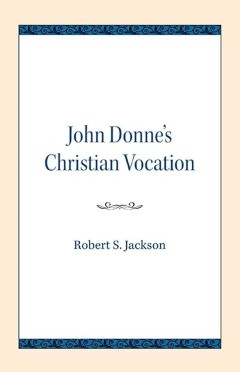
John Donne's Christian Vocation
John Donne’s poetry is often difficult and perplexing, even more so because it undergoes a shift away from secular topics after he converts and begins to lead a religious life. Robert S. Jackson’s John Donne’s Christian Vocation is one of the first studies that takes seriously the ways that Donne’s Christian vocation permeates all of Donne’s writings, not just those after his conversi…
- Edition
- -
- ISBN/ISSN
- 9780810138476
- Collation
- 200 halaman
- Series Title
- -
- Call Number
- 800 JAC j
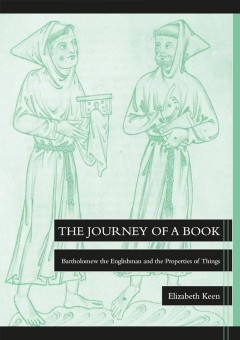
The Journey of a Book : Bartholomew the Englishman and the Properties of Things
De proprietatibus rerum, ‘On the properties of things’, has long been referred to by scholars as a medieval encyclopedia, but evidence suggests that it has been many things to many people. The sheer number of extant manuscript copies and printed editions, along with translations, adaptations, and mentions in poems and sermons, testify to its continuous significance for Europeans of all esta…
- Edition
- -
- ISBN/ISSN
- 9781921313073
- Collation
- -
- Series Title
- -
- Call Number
- 800 KEE j
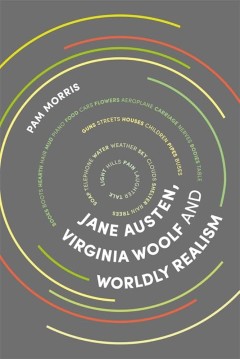
Jane Austen, Virginia Woolf and Worldly Realism
Austen and Woolf are materialists, this book argues. "Things" in their novels give us entry into some of the most contentious issues of the day. This wholly materialist understanding produces worldly realism, an experimental writing practice which asserts egalitarian continuity between people, things and the physical world. This radical redistribution of the importance of material objects and b…
- Edition
- -
- ISBN/ISSN
- 9781474419130
- Collation
- 256 halaman
- Series Title
- -
- Call Number
- 800 MOR j
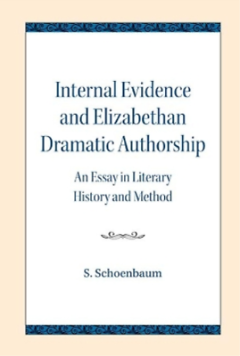
Internal Evidence and Elizabethan Dramatic Authorship : An Essay in Literary …
Internal Evidence and Elizabethan Dramatic Authorship provides one the earliest attempts to write a theoretical method for evidence within plays to help determine authorship or to help distinguish the work of one author from another. Samuel Schoenbaum’s study remains valuable, for the attempt to attribute unattributed plays to one or another author remains an ongoing conversation within early…
- Edition
- -
- ISBN/ISSN
- 9780810138674
- Collation
- 304 halaman
- Series Title
- -
- Call Number
- 800 SCH i
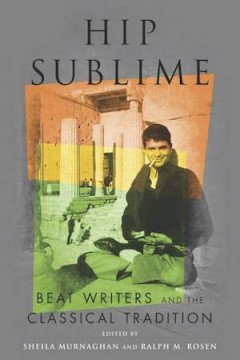
Hip Sublime : Beat Writers and the Classical Tradition
In their continual attempt to transcend what they perceived as the superficiality, commercialism, and precariousness of life in post-World War II America, the Beat writers turned to the classical authors who provided, on the one hand, a discourse of sublimity to help them articulate their desire for a purity of experience, and, on the other, a venerable literary heritage. This volume examines f…
- Edition
- -
- ISBN/ISSN
- 9780814213551
- Collation
- -
- Series Title
- -
- Call Number
- 800 MUR h
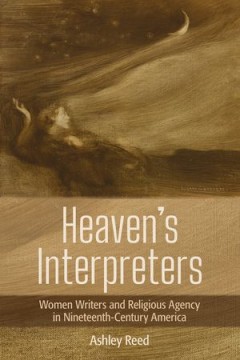
Heaven's Interpreters : Women Writers and Religious Agency in Nineteenth-Cent…
In Heaven's Interpreters, Ashley Reed reveals how nineteenth-century American women writers transformed the public sphere by using the imaginative power of fiction to craft new models of religious identity and agency. Women writers of the antebellum period, Reed contends, embraced theological concepts to gain access to the literary sphere, challenging the notion that theological discourse was e…
- Edition
- -
- ISBN/ISSN
- 9781501751387
- Collation
- -
- Series Title
- -
- Call Number
- 800 REE h
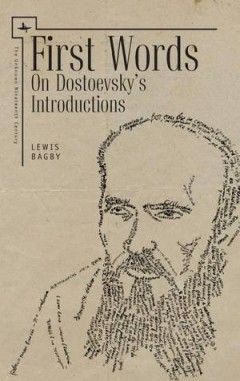
First Words : On Dostoevsky's Introductions
Dostoevsky attached introductions to his most challenging narratives, including Notes from the House of the Dead, Notes from Underground, The Devils, The Brothers Karamazov, and A Gentle Creature. Despite his clever attempts to call his readers' attention to these introductions, they have been neglected as an object of study for over 150 years. That oversight is rectified in First Words, the fi…
- Edition
- -
- ISBN/ISSN
- 9781618114822
- Collation
- -
- Series Title
- -
- Call Number
- 800 BAG f
 Computer Science, Information & General Works
Computer Science, Information & General Works  Philosophy & Psychology
Philosophy & Psychology  Religion
Religion  Social Sciences
Social Sciences  Language
Language  Pure Science
Pure Science  Applied Sciences
Applied Sciences  Art & Recreation
Art & Recreation  Literature
Literature  History & Geography
History & Geography